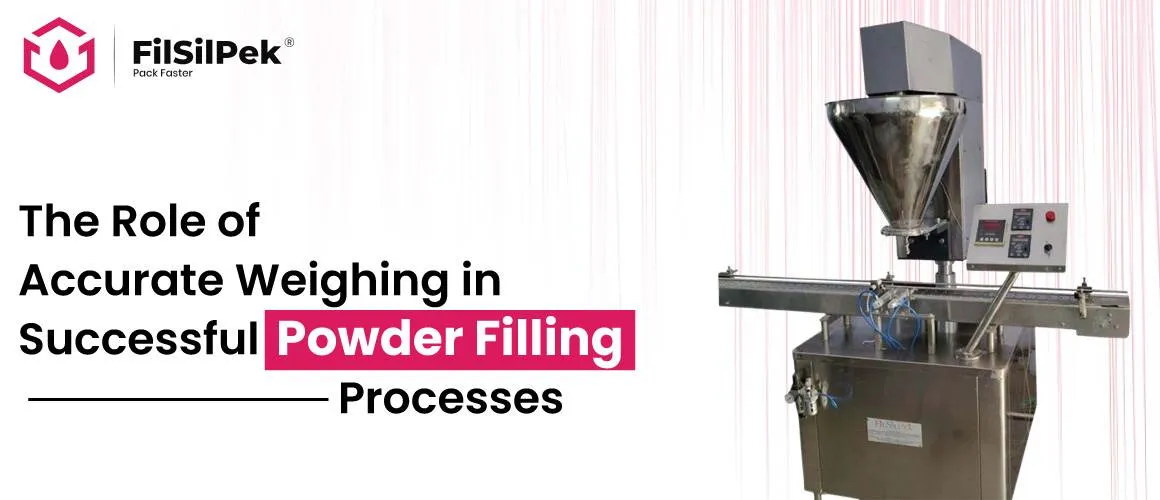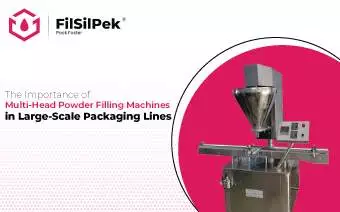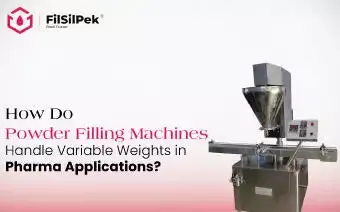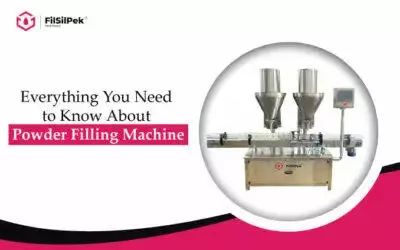The Role of Accurate Weighing in Successful Powder Filling Processes
The powder filling process is an essential aspect of various industries, including pharmaceuticals, food production, cosmetics, and chemicals. In each of these sectors, precision in the filling process is crucial, as even small deviations in the amount of powder dispensed can lead to significant issues. Powders, with their varying densities, moisture content, and particle sizes, make the process difficult to control manually, demanding a high level of accuracy to meet the industry’s rigorous standards.
Accurate weighing plays a central role in achieving this precision. It ensures that the correct amount of powder is dispensed into each container, maintaining consistency and product integrity. Automatic powder filling machines, using advanced weighing technologies like gravimetric or loss-in-weight systems, provide real-time monitoring and precise measurements. These machines integrate sensors and calibration systems to ensure accuracy that would be nearly impossible to achieve manually.
In this article, we will explore how accurate weighing systems are crucial in ensuring the success of powder filling processes, the challenges involved, and how modern technologies like automatic filling machines address these challenges.
Why Accurate Weighing Matters in Powder Filling Process?
The accuracy of weighing systems in powder filling processes directly influences product quality and operational efficiency. Powders, whether granular, fine, or powdered, exhibit unique handling characteristics that can make accurate measurement challenging. Unlike liquids or solids, powders can vary in density, moisture content, and particle size, making the weighing process more susceptible to error. Any inconsistency in measuring these powders could lead to product variations, which can have significant consequences in industries where product specifications are tightly controlled.
Here are several reasons why precise weighing is critical in powder filling processes:
1. Product Consistency and Quality Control
Accurate weighing is key to ensuring uniformity in the amount of powder placed into each container. In sectors like pharmaceuticals, where exact dosages are necessary for efficacy and safety, small deviations in weight can lead to serious consequences, such as ineffective medication or adverse reactions. Even in non-pharmaceutical industries, maintaining consistency helps to create products that meet customer expectations and regulatory requirements.
2. Compliance with Regulatory Standards
In many industries, the quality and composition of products are closely regulated by government bodies. For example, in the pharmaceutical industry, the FDA enforces strict guidelines regarding dosage accuracy. Similarly, the food industry adheres to standards regarding portion sizes and nutritional content. Ensuring precise measurements through accurate weighing systems helps businesses meet these regulations and avoid costly fines, product recalls, or legal complications.
3. Cost Efficiency and Waste Reduction
Accurate weighing contributes directly to the efficiency of the powder filling process. Overfilling can result in unnecessary waste of raw materials, while underfilling can lead to product shortages or customer dissatisfaction. By using accurate weighing systems, manufacturers can optimise the amount of powder used, improving both cost-effectiveness and production efficiency. Moreover, waste reduction can contribute to a more sustainable operation, which is increasingly important to businesses and consumers alike.
4. Reduced Downtime and Operational Delays
Inconsistent filling or incorrect weight measurements can lead to frequent adjustments in the production line, causing delays and increasing downtime. By incorporating reliable weighing systems, manufacturers can streamline their production processes, ensuring that machines run efficiently with minimal interruptions. This leads to faster production times, better throughput, and improved profitability.
Key Considerations for Accurate Weighing in Powder Filling
To achieve the desired precision in powder filling, several factors must be taken into account. Here are the most important considerations:
1. Choosing the Right Weighing Equipment
The first step in ensuring accurate weighing is selecting the appropriate equipment for the specific type of powder being processed. There are various types of weighing systems available, including:
- Gravimetric Filling Systems: These systems use the force of gravity to dispense a predetermined amount of powder. They are ideal for free-flowing powders and are often used in large-scale operations.
- Volumetric Filling Systems: These systems measure the volume of powder, but since powders can have varying densities, they may not always be as accurate as gravimetric systems.
- Loss-in-Weight Fillers: A more advanced solution, loss-in-weight systems continuously weigh the powder as it’s dispensed, providing real-time data on the exact amount of powder being filled.
Selecting the right system based on the characteristics of the powder and the production requirements is essential for achieving the highest level of accuracy.
2. Regular Calibration and Maintenance
Even the most precise equipment can lose accuracy over time. Therefore, regular calibration and maintenance are critical to ensure that the weighing systems continue to perform optimally. Calibration ensures that the scale measures the right weight, and maintenance keeps all components in good working order. Regular checks should be scheduled to identify any discrepancies that could impact accuracy.
3. Environmental Control
Powder properties can be affected by environmental factors like humidity and temperature. For example, moisture can cause powders to clump together, impacting their flow and making it harder to weigh accurately. Ensuring that the powder filling area is controlled for temperature and humidity can help maintain consistency in the process.
4. Training and Operator Expertise
Even with the best equipment, the skill and knowledge of the operators are crucial to achieving accurate weighing. Operators must be well-trained in how to use the weighing systems, handle powders correctly, and troubleshoot any issues that may arise. Continuous training ensures that staff can adapt to new technologies and maintain high standards of quality control throughout the filling process.
Benefits of Accurate Weighing in Powder Filling
Accurate weighing in powder filling processes offers several technical advantages that directly impact operational efficiency and product quality. Here are the key technical benefits:
1. Enhanced Calibration and Precision Control
Accurate weighing allows for effective calibration of automated filling systems, ensuring precise dispensing within tight tolerances. This minimizes batch-to-batch variation and optimizes the system for different powder types, enhancing overall stability and product consistency.
2. Real-Time Monitoring for Adaptive Adjustments
Advanced powder filling systems with loss-in-weight or gravimetric technologies continuously monitor the dispensing process in real-time. This capability allows immediate adjustments for changes in powder density or moisture content, preventing overfilling or underfilling during production.
3. Minimized Risk of Cross-Contamination and Compliance Failures
Precise weighing ensures each product contains the correct amount of active ingredient, reducing the risk of cross-contamination and ensuring compliance with regulatory standards. This helps avoid costly recalls, audits, and legal penalties.
4. Optimization of Flow Properties for Complex Powder Blends
For complex powder blends, accurate weighing systems optimize dispensing rates to maintain uniformity, even with powders prone to clumping or segregation. This ensures the correct proportion of ingredients in each batch, preserving product quality.
5. Improved Statistical Process Control (SPC)
Accurate weighing enables advanced statistical process control (SPC), allowing manufacturers to detect trends, identify deviations, and implement corrective actions quickly. This improves process optimization and stability.
6. Increased Throughput Without Sacrificing Accuracy
Automated systems with accurate weighing capabilities allow for faster throughput while maintaining accuracy. This is particularly beneficial for high-volume production, where scaling up without compromising quality is essential.
7. Reduced System Wear and Tear
By ensuring the correct amount of powder is dispensed, accurate weighing reduces the strain on filling machinery, extending the equipment’s lifespan and lowering maintenance costs.
8. Enhanced Traceability and Reporting
Accurate weighing systems provide better traceability by logging each filled unit’s weight, which aids in quality control, regulatory reporting, and troubleshooting, ensuring full transparency throughout production.
Final Words
When it comes to powder filling, precision is everything. It’s not just about following a process—it’s about ensuring every gram is spot on to deliver consistent, high-quality results. From pharmaceuticals to food products, any deviation can cause ripple effects that affect both compliance and customer trust. The great news is that with the right technology, accuracy is more achievable than ever. Automated filling machines with advanced weighing systems help streamline production, reduce waste, and ensure each product meets the mark.
If you’re ready to optimize your powder filling process, we’re here to guide you every step of the way. Get in touch with us at [email protected], and let’s explore how we can tailor the perfect solution for you. Precision, efficiency, and reliability are just an email away—let’s make it happen!
The Importance of Multi-Head Powder Filling Machines in Large-Scale Packaging Lines
Large-scale packaging operations require precision, efficiency, and speed to meet high production demands….
How Do Powder Filling Machines Handle Variable Weights in Pharma Applications?
Every dose of a pharmaceutical powder carries a promise—a promise of precision and reliability…
Everything You Need to Know About Powder Filling Machine
Automatic powder-filling machines are advanced industrial machines designed to streamline and automate the process of filling powdered substances into various containers. These…



